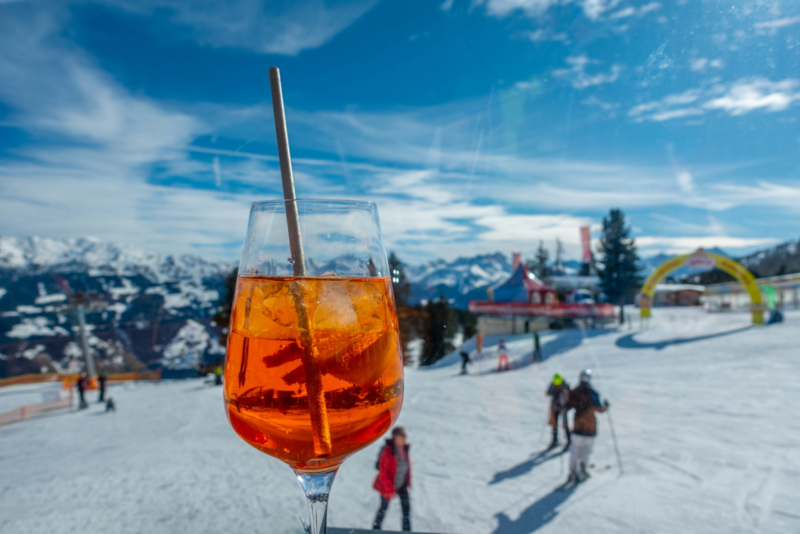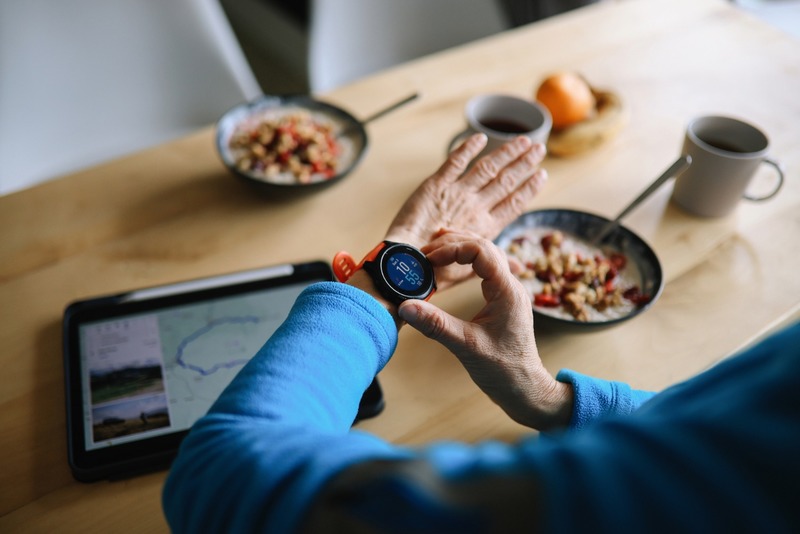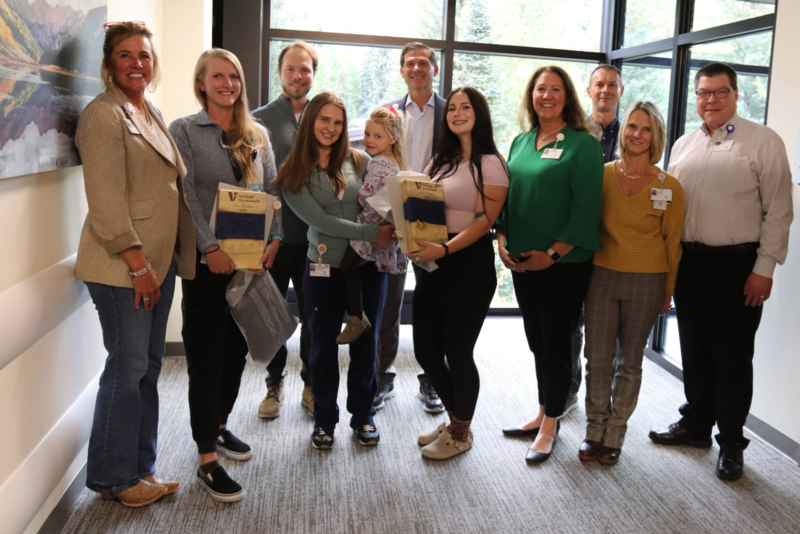News
A Two-Way Street: Doctors & Ski Patrollers Learn From One Another On & Off the Hill
When Dr. Jack Eck first became involved with Vail's medical training for ski patrol in the '70s the resort became a leader amongst its peers. Since then Vail's training and education programs for patrollers have evolved and grown. Much of that has to do with the types of skiers who are attracted to the resorts said Eck doctor of internal medicine and medical adviser to the Vail Ski Patrol.
As the ski industry got busier we invited more affluent people here that weren't in that great of shape Eck said. Last season Vail reported more than 1.7 million skier visits so statistically other things are going to happen. So the ski industry realized they needed to have more sophisticated care available. The skiers who come out here have those expecta-tions now.
Continuing education
Dr. Reg Franciose general surgeon said local doctors participate in ski patrol training in the fall giving the patrollers lectures on various medical issues.
Jack (Eck) talks to them about medical problems asthma heart attacks and I talk about traumatic issues as I'm a trauma surgeon also Franciose said.
Patrol education continues throughout the ski season said Dr. Tom Hackett.
I'll meet with them and do lectures or demonstrations preseason said Hackett who is an orthopaedic surgeon and sports medicine specialist at The Steadman Clinic and head doctor for the U.S. Snowboard Team and the American Mountain Guides Association. And then a lot of times we'll have the patrollers come over to our lab.
In the Steadman Philippon Research Institute lab located within the medical center patrollers can observe surgery or do hands-on work with cadaver specimens to learn more about anatomy Hackett said.
They want practical things they can use in the field Hackett said. They don't need to know the intricacies of high-end surgical techniques but there are lots of things that we work with in terms of stuff that's practical slopeside.
We're available to them to review cases that they have so a couple of times during the season we'll keep track of the bigger issues that they have and we'll sit down and go through them Franciose said.
Franciose said Vail's patrollers are very well-trained in part because Eck has spent so much time with the teams. They don't need much guidance but we want to keep up with the literature as it changes Franciose said. A couple of years ago there was a major change in cardiac life support and how you do CPR so we make sure those things are put into their protocols as soon as they become public information.
Mutual respect
Ski patrollers have earned the respect of doctors at VVMC many of whom are former patrollers themselves. One of those is Hackett who was a professional patroller in Jackson Wyo. before coming to VVMC.
Hackett said having that ski patrol background gives him insight into what information is important to patrollers and what's not.
They have to synthesize information down into little nuggets that are useful on a day-to-day basis on the slope he said. And unless you were a patroller you might not appreciate those things.
Aside from various on-mountain injuries patrollers also deal with unsolicited help.
All of those patrollers have dealt with a doctor who has come up to them and said 'I'm a doctor I can take over' and it's some psychiatrist from Oklahoma who is no help at all Hackett said.
Jason Moore epidemiologist and physician's assistant for trauma and critical care at VVMC was formerly a patroller at Copper Mountain. Moore said he feels he has a personal connection to the patients who are brought down from the mountain by the ski patrol.
I understand where they're coming from what interventions were performed on the ski mountain to try to save this person's life all the challenges they face just in their working day Moore said. The strains that terrain and weather put on providing medical care are very real even in a resort environment.
People don't realize that we've punched a hole in the middle of a wilderness area Eck said.
Eck said a tilted hillside is a hostile working environment.
When they are working on people they aren't working in a warm room he said. They're out there in the cold where they put themselves at risk trying to get people out. It's not easy on the hill to evaluate injuries.
Franciose said the ski patrollers are dedicated and hard working and have hard jobs.
It's pretty hard to do a lot when (the snow is) blowing sideways Franciose said. The mountain's huge and they have to get people from the back bowls and that takes some time and some of the places they have to pull people out of are pretty technically demanding getting them out of the woods and tree wells.
Channels of communication
From the moment ski patrol arrives on the scene of an on-mountain injury communication between patrollers and doctors at Vail Valley Medical Center is constant. The information that the doctors at the medical center get from the ski patrollers after they assess an injury is invaluable to improving emergency medical protocols and patient care. We learn the mechanisms of injury what happened on the mountain Moore said. We're able to get the history of the case and learn what happened from them.
Knowing what happened on the mountain provides doctors at VVMC a springboard to launch into treatment.
They can have information that is useful in how to treat someone surgically Hackett said. They see things that I don't get to see when the injury first happens.
Once the patient has been evaluated at the medical center ski patrol is given feedback about the injury so similar injuries can be more easily recognized in the future. When Hackett was on ski patrol closing the loop in communication wasn't always there which was frustrating he said.
This two-way communication channel helps to build the relationship between the doctors and patrollers Moore said. It also allows closure between the patroller and the patient.
When I first started doing it I was amazed at how interested (the ski patrollers) are in the follow up Franciose said. They care they really want to know what happened to these people.
As important as the education component is I think the most valuable part of what we do is give feedback on the injuries and what the long-term results were Franciose said.
Patient care improves with effective communication from the initial injury to the final report back to the ski patrol Moore said.
Ski patrol does an exceptional job we're looking at the highest level of on-mountain care anywhere Moore said. It benefits us when looking at quality-improvement measures because we're already at such a high level.
Learning from patrollers
Local doctors have picked up on the lessons in on-mountain care that can be learned from high-caliber ski patrols.
We teach a course every fall for all the doctors who are going to travel with the U.S. Ski and Snowboard teams Franciose said. And a huge component of that course is taught by the ski patrollers and the paramedics who are ski patrollers.
Franciose said every three years every doctor who travels with any of the U.S. Ski and Snowboard teams is required to take the course called Medical Emergencies in Skiing or Snowboarding or MESS for short.
A big component of that course is how you deal with the outdoor component the immediate care on the slopes Franciose said. So we've all benefited from learning that part of it from them it's not a one-way street.
The course was conceived in Vail by a handful of doctors in the community as well as the medical director of the U.S. Ski and Snowboard Association Franciose said and the concepts and curriculum have developed over time. Doctors come from all over the country to learn from local ski patrol and patrol paramedics to aid their teams on the slopes from alpine and Nordic to jumping and aerial teams.
I think the people who do it both the paramedics and physicians find it very satisfying Franciose said. It's great interacting: We provide medical education they provide us with the understanding of the limitations that they're working with. It goes back and forth.
Eck said the link between the ski patrol and the medical center personally and professionally is important to the community.
There have been several ski patrollers who go on to become doctors nurses physicians assistants EMTs and paramedics Eck said. They are friends with some of (the patrollers) which keeps continuity between the ski area and the hospital allowing us to deliver overall better healthcare to the community.
Most of my close friends are ones that I was on patrol with. We keep the relationships going and that's why we stay.
More News
-
New!
More

First Chair to Last Call: What Does Alcohol Really Mean For Your Health?
In nearly every Colorado ski town, some iteration of the neon sign blares its play-hard-party-harder anthem. It’s a not-so-subtle nod to mountain party culture, a lifestyle that normalizes combining sports and outdoor adventures with heavy drinking and partying. In Eagle County, après culture, high-altitude living and outdoor performance have coexisted for as long as locals have been sliding on snow. But how much is too much at altitude? And what role do social support systems play in helping residents find balance?
-
New!
More

Counting More Than Steps: How Wearables Can Help (or Hinder) Your Health
From step counts to sleep stages, heart rate variability to blood sugar spikes, wearable devices are giving us a front-row seat to what’s happening inside our bodies. Strapped to wrists, slipped onto fingers or wrapped around our biceps, wearables like the Oura Ring or Whoop strap promise insight and advice in the quest for better health.
-
More

Cass Barham and Sarah Crabtree Honored As Recipients of Vail Health Elevate Award
Cass Barham and Sarah Crabtree, both lab techs at Vail Health Hospital, have been named recipients of the Vail Health Elevate Award. Vail Health created the Elevate Award in June 2022 to give patients and their families an opportunity to nominate and thank employees who have touched their lives in some way.
